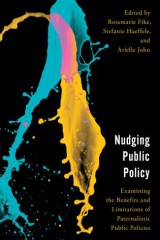- | F. A. Hayek Program F. A. Hayek Program
- | Books Books
- |
Interdisciplinary Studies of the Political Order
New Applications of Public Choice Theory

Purchase the book on Amazon or at R&L.
Published by Rowman & Littlefield in Economy, Polity, and Society
The political process focuses on the ways that people come together to engage in collective decision making in a variety of contexts. The central elements of the political process include: the formation of rules, the subsequent interactions that take place within those rules, and the evolution of rules over time.
Scholars working in the area of Virginia political economy—e.g., James Buchanan and Gordon Tullock—emphasize the importance of applying the tools of economics to non-market settings, including politics. Scholars in this tradition focus on both politics and economics to understand the formation of political rules—constitutional political economy—as well as the subsequent play within those rules—public choice. Scholars in the Bloomington School—most notably, Elinor and Vincent Ostrom—have emphasized three important aspects of the political process and political order. The first is the distinction between “rules in form” and “rules in use.” The rules in form refer to codified rules while the rules in use refer to the rules that people actually follow in their daily lives.
Together, these dynamics generate the political order. The chapters in this volume explore and engage the key thinkers and ideas of the Virginia and Bloomington schools of political economy. The diversity in topics and approaches will make the volume of interest to readers in a variety of fields, including economics, entrepreneurship, history, political science, and public policy.




